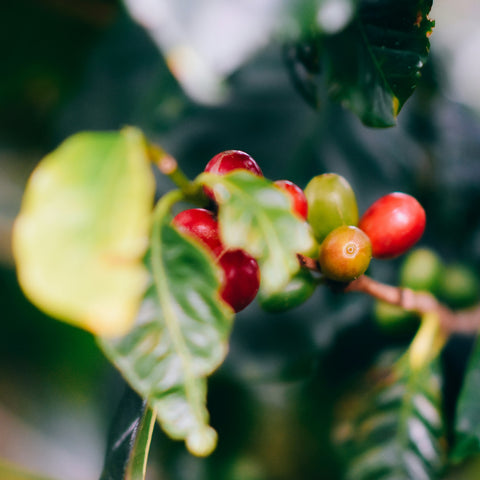Here are some tips on how to get better control of your brewing techniques:
1. Always measure
Buy yourself a digital scale to ged rid of inaccurate measurements. Making tasty coffee is impossible if you eyeball it. Precision and discipline are key to achieving consistency.
2. Use freshly ground coffee of good quality
Make sure you know when the coffee was roasted. It should be written on the bag or in worst case you would have ask your supplier. Our coffee starts tasting its best after 3 weeks of resting. Invest in a good burr coffee grinder (not the cheap, whirrly blade grinders). A grinder is like having a wine opener. Grinding your coffee fresh is crucial, as it oxidizes quickly once ground. Adjust grind size based on brewing method and ratios.
3. Use correct coffee to water ratios
These ratios vary from coffee to coffee and from brewing device to brewing device. You can consult our specific brewing guides for details, but as a rule of thumb, aim for 64g of coffee per litre of water. If you find that your coffee is too weak, grind more finely next time or vice versa if the coffee is too strong.
4. Use correct grind size
This will vary depending on your coffeeand your brewer but it will depend on how much coffee you want to brew. Click on our brewing guides for details.
5. Control contact time
Coffee can very easily be under-extracted and the contact time between coffee and water is essential for a balanced brew. Contact time can vary from 25 seconds for an espresso to 6 minutes for a big brew in a Moccamaster. The contact time is greatly influenced by how fine or coarse you grind your coffee. Use a stopwatch to ensure proper contact time.
6. Use good quality water
If you notice any off-taste in your tap water (like chlorine) or you have problems with calcium (scale/hard water), use filtered water. A simple carbon filter will remove off tastes, but removing calcium requires complicated filtration systems. You can even craft your own brew water if you want!
7. Clean your brewing equipment after every brew
Dirty equipment results in stale, rancid, and bitter-tasting coffee.

